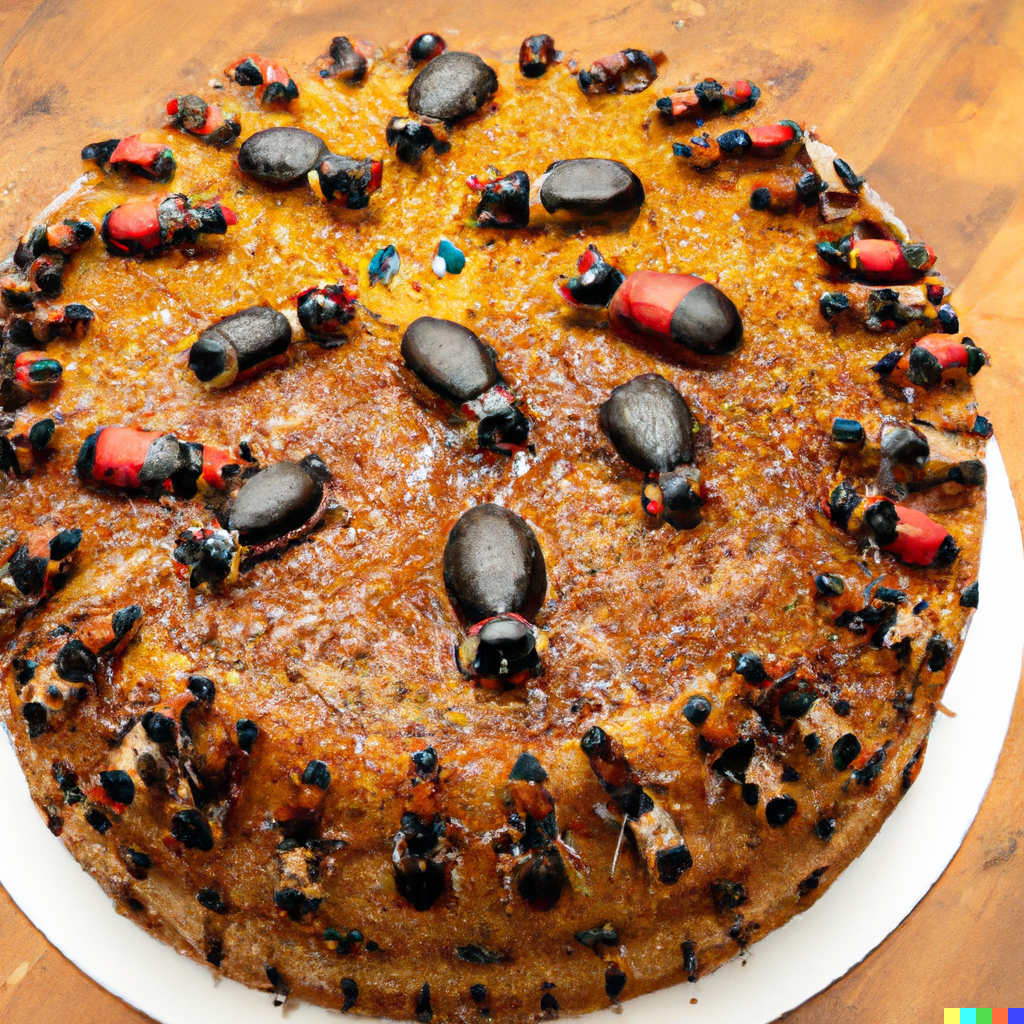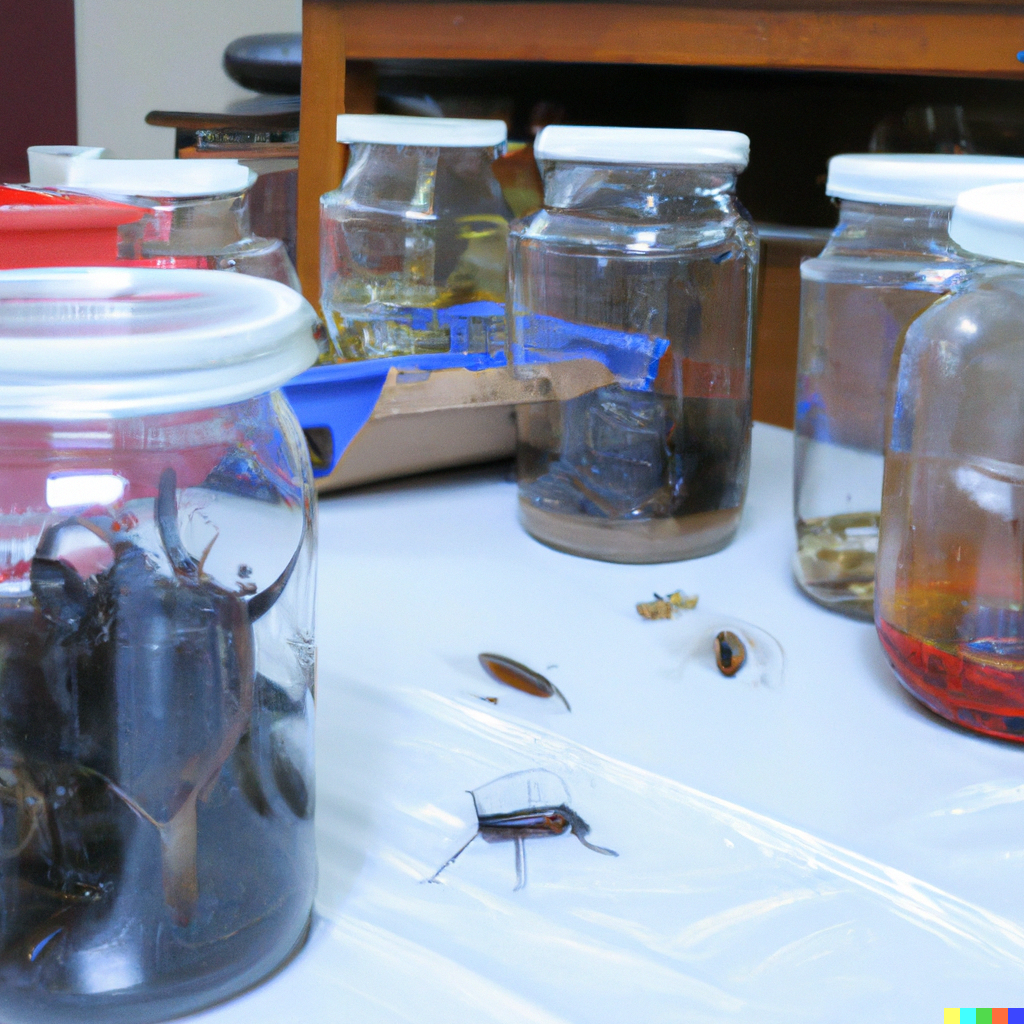
The European Union has approved the consumption of insects. What will be the impact due to this permit?
Kai D. The approval of the consumption of insects by the European Union (EU) could have a number of impacts. Some of these impacts may include:
Increased availability of insect-based foods in supermarkets and restaurants across the EU.
Environmental benefits: Insects are considered to be a more sustainable protein source compared to traditional animal farming, as they require less land, water, and feed. With increased availability of insect-based foods, this could lead to a reduction in greenhouse gas emissions and environmental impact associated with traditional animal farming.
Economic benefits: The EU approval could also open up new business opportunities for companies producing insect-based foods. This could lead to job creation and economic growth in the food industry.
Nutritional benefits: Insects are a good source of protein, vitamins, and minerals. This could lead to improved nutrition for consumers.
It’s also worth noting that the acceptance of entomophagy will vary from one country to another, and it’s important to consider cultural factors, personal preference and religious beliefs before making any dietary decision.

In some countries people processes and prepares insects for human consumption. What is the impact of such consumption of processed insects by humans on the long run?
Kai D. The consumption of processed insects as food, known as entomophagy, has been practiced by some cultures for centuries and is becoming increasingly popular in many parts of the world as a sustainable protein source.
The long-term impact of entomophagy on human health is not well-established, as research in this area is limited.
Insects are also more efficient to raise than traditional livestock, they require less land, water, and feed, and they have a lower carbon footprint. Eating insects could potentially help to reduce the environmental impact of food production and meet the protein needs of an increasing global population.
However, there are concerns about the safety and hygiene of insect-based food products, and some people may have an allergic reaction to certain types of insects. It’s important to properly process and prepare insects for human consumption to ensure safety and hygiene.
Overall, more research is needed to fully understand the long-term impact of entomophagy on human health and the environment.

What is the ethical impact of this action?
Kai D. The ethical impact of entomophagy, or the consumption of insects as food, is a complex issue that raises a number of ethical questions.
One ethical concern is the treatment of insects used for food. As with any animal raised for food, the welfare of insects should be considered, and appropriate measures should be taken to minimize suffering. This includes providing appropriate living conditions, minimizing stress during transportation and processing, and using methods of killing that are humane.
Another ethical concern is the impact of insect farming on the environment. As with any form of agriculture, insect farming can have an impact on the natural environment, and it’s important to consider the potential environmental effects and work to minimize them.
Additionally, there may be cultural and religious considerations to take into account, as some people may find the consumption of insects to be offensive or against their beliefs.
Moreover, there are ethical concerns related to access and distribution, as entomophagy is not a common practice in many parts of the world, and not everyone has equal access to insect-based foods.
Overall, while entomophagy has the potential to be a sustainable and environmentally friendly source of protein, it’s important to consider the ethical implications and take appropriate measures to address them.

What are the religious impacts of this act?
Kai D. The consumption of insects, or entomophagy, may have religious implications for certain individuals or groups. Different religions have different dietary laws and guidelines, and some may prohibit or restrict the consumption of certain types of insects.
For example, in Judaism, there are specific laws surrounding the consumption of insects and kosher dietary laws. Insects that have four legs and chew their cud are considered kosher, but those that have four legs but do not chew their cud are considered non-kosher.
In Islam, there are also dietary laws and guidelines known as halal, which prohibits the consumption of certain foods including pork, blood, and animals that have been killed in a specific way. Insects are generally considered permissible to eat, but it would depend on the specific species, and how they were killed or prepared.
In Hinduism, there are restrictions on certain types of food, and some insects are considered to be impure and should be avoided.
In Christianity, there are no explicit dietary laws, but some Christian denominations may have their own guidelines and beliefs about what is considered acceptable or appropriate to eat.
It’s important to note that these examples are general overview, and there may be variations within different sects, denominations, or communities within these religions. It’s always best to consult with a religious authority or scholars before making any dietary decisions based on religious considerations.

What do you think would be consumed by humans after insects in the long run?
Kai D. It’s difficult to predict exactly what humans will consume in the long run, as it will depend on a variety of factors such as technological advancements, environmental considerations, and cultural and societal trends.
However, some possible alternatives to insects as a source of protein in the long run include:
Plant-based protein sources: As more people are becoming conscious of their health, the environment, and animal welfare, plant-based protein sources such as soy, pea, and hemp have been gaining popularity as a sustainable and ethical alternative to meat.
Lab-grown meat: Also known as “clean meat,” this technology involves growing meat from animal cells in a lab, rather than raising and slaughtering animals. This could provide a sustainable and ethical alternative to traditional meat production.
Algae and Microorganisms: Algae and microorganisms such as yeast and bacteria are a great source of protein and they require less land and water than traditional animal farming.
Synthetic meat: Scientists are working on creating meat from plant-based or lab-grown ingredients, this meat would have a similar taste and texture to the meat from animals but it will be more ethical and environmental friendly.
It’s important to note that these are some possibilities, but the future of food production is uncertain, and it’s likely that new technologies and discoveries will continue to shape the food landscape in the future.

What will humans do if they cannot produce insects in the future? Will they opt for recycling human bodies?
Kai D. It is unlikely that humans would resort to recycling human bodies as a food source in the future if they were unable to produce insects. The idea of consuming human flesh, known as cannibalism, is widely considered morally repugnant and taboo in most cultures and societies, and is illegal in many countries.
If humans were unable to produce insects as a food source, it is more likely that they would explore other alternative protein sources. Some possibilities include plant-based protein sources, lab-grown meat, algae, and microorganisms, and synthetic meat.
Additionally, there are many other options for food production, such as vertical farming, genetic engineering and other forms of sustainable agriculture that could provide the food necessary to feed the world population.
It’s important to note that this is a highly unlikely scenario, and it’s hard to predict what will happen in the future but it’s safe to say that as long as there are humans on this earth, it’s unlikely that they will resort to cannibalism as a food source.

What happens to people who cannot afford normal food which will be more expensive than insect food?
Kai D. If insect-based foods become more widely available and popular, it is possible that the cost of traditional animal-based foods may increase due to the increased demand for alternative protein sources. This could make it more difficult for people who are already struggling to afford enough food to afford traditional animal-based foods.
However, it’s worth noting that insects are considered to be one of the most sustainable protein sources, and they could be produced at a lower cost than traditional animal protein, which could make them an affordable option for people living in poverty.
Additionally, governments, non-profit organizations, and charity groups could also provide assistance to low-income families to help them afford food, including insect-based food.
It’s also important to consider that insect-based food, like any food, should be considered as a part of a balanced diet and should not be the only source of protein or nutrition. There are many other sources of protein and nutrients that can be obtained from plants, grains and other food sources, which could be more affordable than animal-based foods.
In any case, it’s important to address food insecurity and make sure that people have access to a variety of affordable and nutritious food options, regardless of their income level.

Tomorrow, if human beings extinct all remaining living beings will not miss the humans. On the other hand, when all the insects and animals should extinct, the humans cannot survive long. In such a scenario is it not advisable for the humans to stop eating insects and animals?
Kai D. It is true that insects and animals play a vital role in maintaining the balance of ecosystems and are necessary for the survival of many other species, including humans. The loss of insects and animals could have severe consequences for the environment and the survival of other species.
Humans rely on insects and animals for many things, including pollination, pest control, and food. If all insects and animals were to become extinct, it would be extremely difficult for humans to survive in the long term.
Therefore, it would be advisable for humans to stop eating insects and animals, or at least greatly reduce their consumption, in order to preserve these species and protect the environment. This could be done by increasing the consumption of plant-based protein sources, lab-grown meat, and other alternative protein sources, and implementing sustainable farming practices that do not harm the environment.
Additionally, it is important for humans to conserve and protect the environment and all living beings, not just for their own survival but for the survival of all living things on earth.
